Everything You Need to Know About Capital Pride
Capital Pride provides welcoming spaces for people to celebrate their unique identities -- and does it free of charge

When Ashley Smith attended his first Pride in Atlanta in 1998, the 22-year-old from Louisville, Kentucky, was stunned at the idea of gay people living openly and celebrating their identities.
“I was scared at some point, because I felt that growing up as a preacher’s kid, and understanding that the gay life was something that wasn’t supposed to be accepted, I was just like, ‘Oh, my gosh, I didn’t realize there was all of this,'” he says. “The other part for me was that I also saw my first exposure to the gay community at a time period where I still saw people dying because of AIDS. My fear was, that was the life that I was going to end up being in as well.”
Despite his mixed emotions, that first dip into Pride led to his eventual acceptance of his own identity. “My first Pride experience was shocking more than anything else. [But] I was glad that I was able to go so I could at least say that I understand, and that allowed me to gradually get to a place where I felt comfortable with who I am.”
When he reflects on his journey, the newly elected president of Capital Pride Alliance appreciates how Pride celebrations enable LGBTQ people to live authentically. “I think that Pride for me is about seeing the community come together,” he says. “It’s a space where people are celebrating, friends are joined together.”
Prior to accepting his current position, Smith served as president and vice president of the D.C. Coalition of Black LGBT People and as a member of the boards of directors for both the Human Rights Campaign and The DC Center.
Throughout the years, he had marched with the HRC contingent in the Capital Pride Parade, but had very little direct involvement in the planning of the annual celebration. That changed when he befriended Ryan Bos, executive director of the Capital Pride Alliance. After seeing what Bos had to deal with as part of planning for Pride, Smith was inspired to add his own efforts to the cause.
“I wanted to contribute to the diversity within the organization, making spaces for individuals and voices that may not have been heard in the past. I saw it as an opportunity to share with the community the positive work that Capital Pride is doing. I want to help the organization to continue to grow and develop ways to reach out and bridge the gaps in our community that we have.”
This year’s Pride theme, “Elements of Us,” was chosen after consulting with a group of Capital Pride volunteers, producers, staff, and board members, who also provided feedback from the larger community. “When you look at that particular theme, you really are saying, ‘Our LGBTQ community has so many different aspects of us,'” says Smith. “All of us come from several different lanes, we come together as one community, as one team, as one Pride organization, and that’s where we came up with ‘Elements of Us.'”

In the past, Capital Pride has been criticized for a lack of visible diversity, in terms of the makeup of its board and people in decision-making positions. But Bos and Smith point to actions taken to foster diversity within the Capital Pride Alliance, such as increasing the number of board positions to 22 and encouraging people of color, women, and transgender people to take leadership roles, either as board members, volunteers, or producers of various Pride events.
“When you look at our volunteer pool, when you look at the work we did to bring new folks to the board, when you look at how we are empowering our volunteer core of leaders, I think you’ll see the commitment we have to continue to push and do better and do more,” says Bos, whose involvement with Capital Pride dates back to 2000, when he marched as part of the District of Columbia Aquatics Club. “To have not just a visible diversity, but also diversity in thoughts and ideas.”
Smith notes that the Capital Pride Alliance has intentionally reached out to organizers of other Prides, including Capital Trans Pride, Black Pride, Latinx Pride, and Silver Pride, to discuss potential partnerships. The organization is also looking at ways to engage and partner with local organizations to carry out other community events throughout the year, not just during Pride season. Looking to the future, Smith hopes to expand Pride’s reach to communities where its presence has been lacking, such as east of the Anacostia River.
Last year, the organization No Justice No Pride disrupted the Capital Pride Parade to protest the lack of visible diversity on Capital Pride’s board, as well as the corporate nature of the event, the inclusion of police, and the participation of companies that have funded causes they see as detrimental to segments of the LGBTQ community and communities of color.
NJNP issued a list of demands to Capital Pride on how best to fix their concerns in future years. Among those were a call for paid managerial positions for a transgender person, and a Native American two-spirit individual, who would be tasked with providing feedback on how to keep Pride inclusive for those marginalized communities. But Smith says that’s not a realistic option for an organization whose primary purpose is to raise the millions of dollars needed to carry out multiple Pride events.
“From a budgetary standpoint, there’s only an allotment of so much that you can do for paid staff members,” he says. “Our board is not a paid position. Most boards of this nature are not paid positions.”
Regarding corporate sponsorship, Bos says that part of the aim of accepting corporate dollars is to ensure that Capital Pride doesn’t have entrance fees to events like the Capital Pride Festival and Concert.
“No city is helping sponsor any Pride,” says Smith. “No government agency throughout any part of the country. You have to understand that all of this stuff we do is to ensure that we are able to provide that Pride experience for people. Yes, it costs a lot, but one of the things we’re very proud of is the fact that we’re still able to do it — and offer it for free.”
To critics who suggest that the celebration simply be scaled back to achieve savings, Bos responds: “There are those who don’t necessarily want a huge-scale Pride event on Pennsylvania Avenue. That’s okay. But there are those that do, and we want to be able to provide that.”

He also notes that Capital Pride charges businesses and nonprofits wishing to participate in Pride events on a graduated scale, based on their ability to pay and their size. That pricing enables Capital Pride to raise money that can be used to obtain permits, book talent for the concert, provide tenting for booths at the festival, and provide private security to ensure attendees’ safety.
In a way, criticism of Capital Pride’s corporate nature is considered ironic, because, in years past, when the celebration was smaller and confined to the field behind Francis-Stevens School, organizers once dreamed of one day gaining visible support from the business community.
“For years, we were fighting for corporations just to show up, for them to support their LGBT employees,” Bos says. “That support has come through what some groups call their Pride groups, or their employer resource groups, where they are saying, ‘I want to show pride that I work here, but I also want us to participate so that we can push for further change within our own companies and corporations and businesses.'”
Smith adds that corporate participation in Pride events allows LGBTQ employees to celebrate part of their identity — their occupation — and the fact that they are valued by their employers regardless of their sexual orientation or gender identity.
“It’s very important for us to understand that every organization in this country, for the most part, has members of our community,” he says. “Is it not right for those LGBTQ members of those organizations to have the ability to show their pride in who they are?”
In response to criticism of allowing defense contractors to participate in Pride, or accepting money from companies that support oil pipelines, private prisons, or donate to anti-LGBTQ politicans and causes, Bos and Smith determine whether a corporation can participate on a case-by-case basis, after consulting with the board, volunteers, and the broader community, if they express concerns about a particular company.
In the event of another parade disruption this year, Capital Pride has been working with the Metropolitan Police Department, local Advisory Neighborhood Commissions, and the Mayor’s Task Force to develop a contingency plan for re-routing the parade and providing a space for those wishing to celebrate.
Despite the challenges and the criticisms, both Bos and Smith say their involvement in Pride has given them a greater appreciation for the affirming environment it provides to the members of the LGBTQ community. “I think as a spectator, you don’t necessarily pay attention to the stories of that 70-year-old who just came out and is going to their first Pride, and what that means to them,” says Bos. “Or how that 7-year-old, going to their first Pride, what that means to them.
“I’m fortunate, whether it be working with Pride, working in higher education, to have a very supportive world around me,” Bos adds. “Working with Pride reminds me that it’s not that experience for everybody.”
For Smith, who approached his very first Pride with trepidation, the marked change in attitudes toward the LGBTQ community is something he continues to marvel at. He also attributes that shift to the prevalence of Pride events that have allowed the heterosexual community to see and relate to the humanity of LGBTQ people.
“I’m glad that we are at the place where we can start to really live that authentically and have the freedoms we did not have back then,” he says. “I’m able to live free…. I’m not afraid, I’m not shocked anymore.
“We were at an event the other day where a young lady was getting an award. She’s seven years old, and identifies as trans, and she’s proud of who she is. I couldn’t have even fathomed identifying as gay when I was that age, and just to see that, and to see that Pride, in many ways, has allowed people to be educated and aware, and families to be more open. To see that little child who is there, and is like, ‘Oh my god, now I know that I can be free,’ is heartwarming and inspirational.”
For more information about this weekend’s Capital Pride events, visit capitalpride.org.
Capital Pride Parade
Saturday, June 9, 2018 — 4:30-7:30pm. From the Dupont Circle area to 17th Street NW, and then 14th & P Street NW. Nearest Metro: Dupont Circle, Red Line stop. (Best to arrive a little early.)
Capital Pride Festival
Sunday, June 10, 2018 — 12 noon-7pm. Pennsylvania Avenue NW, between 3rd and 7th Streets NW. Nearest Metro: Archives-Navy Memorial-Penn Quarter, Green Line stop.

Support Metro Weekly’s Journalism
These are challenging times for news organizations. And yet it’s crucial we stay active and provide vital resources and information to both our local readers and the world. So won’t you please take a moment and consider supporting Metro Weekly with a membership? For as little as $5 a month, you can help ensure Metro Weekly magazine and MetroWeekly.com remain free, viable resources as we provide the best, most diverse, culturally-resonant LGBTQ coverage in both the D.C. region and around the world. Memberships come with exclusive perks and discounts, your own personal digital delivery of each week’s magazine (and an archive), access to our Member's Lounge when it launches this fall, and exclusive members-only items like Metro Weekly Membership Mugs and Tote Bags! Check out all our membership levels here and please join us today!





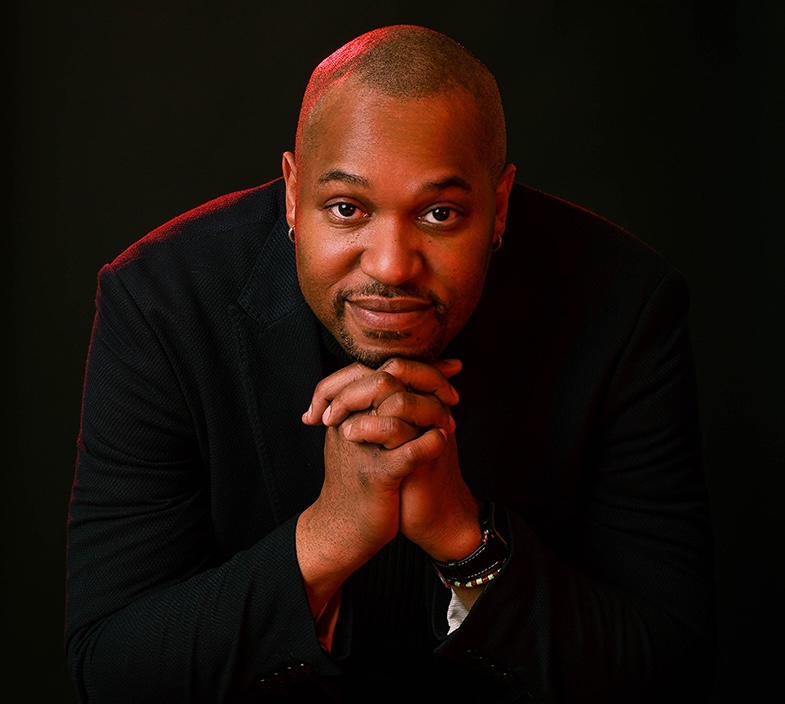

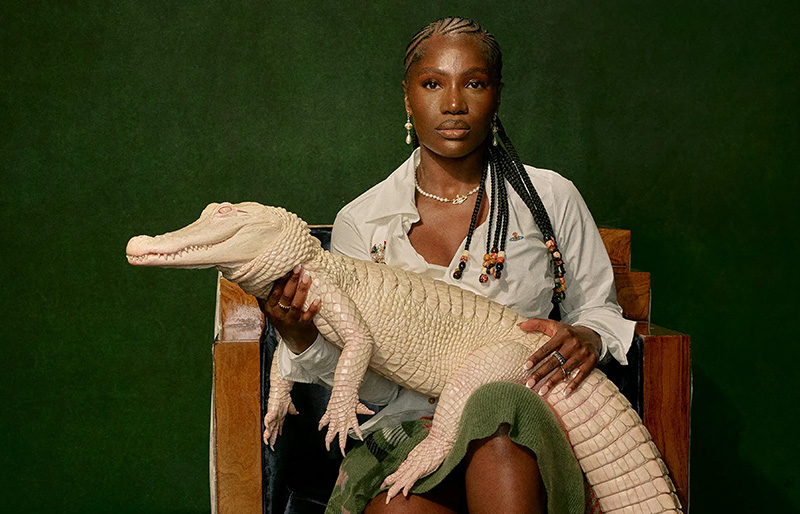














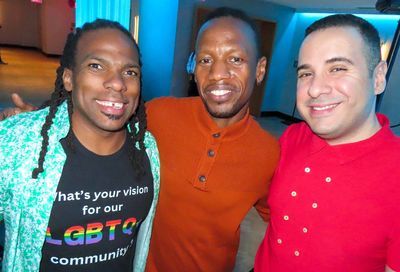
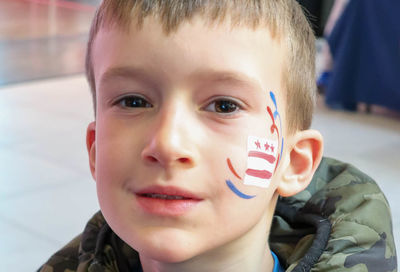
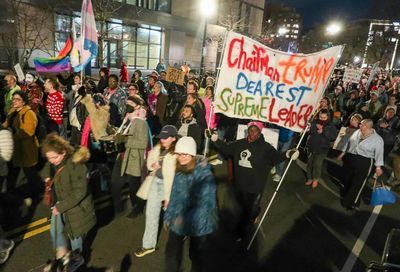
You must be logged in to post a comment.